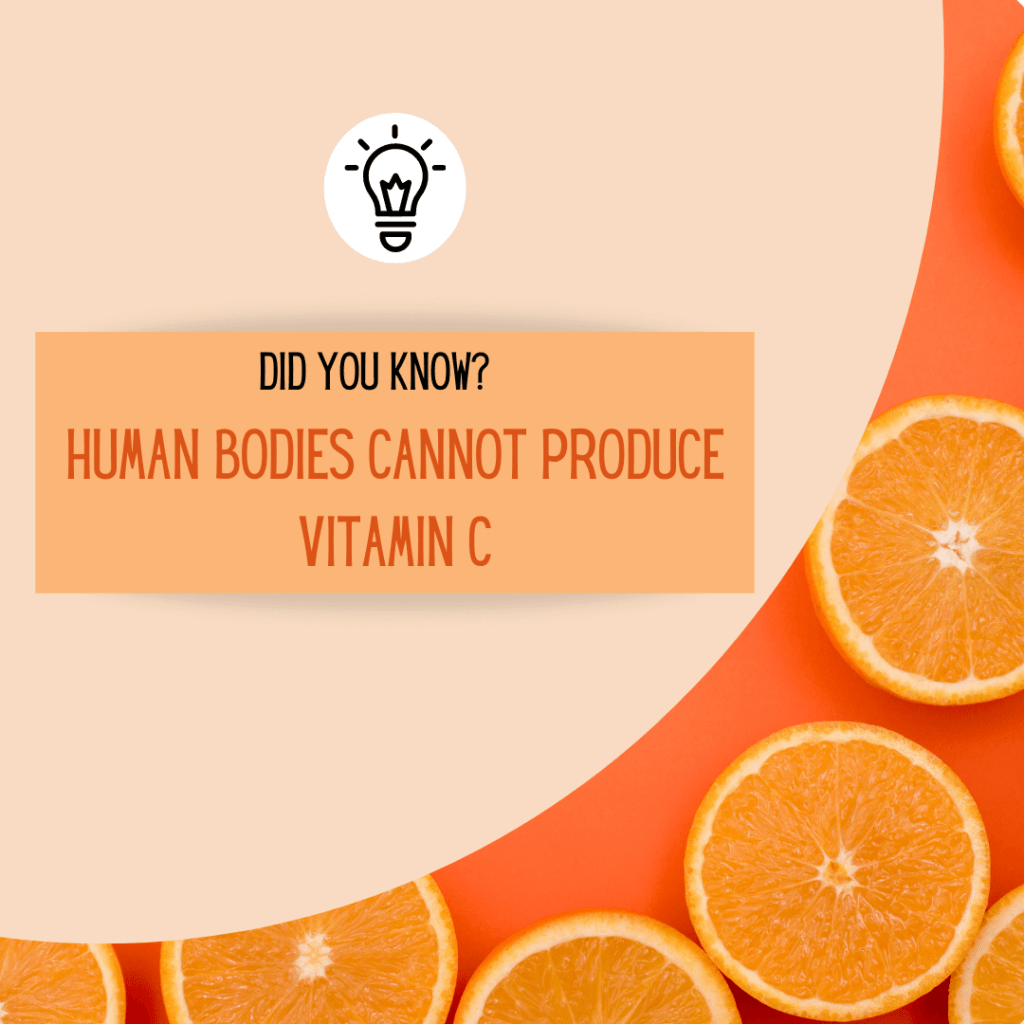Vitamins are organic substances needed for the growth and development of the human body. Ascorbic acid or Vitamin C is one such vitamin.
It was discovered in the 1920s by Albert von Szent Györgyi as the molecule that can cure scurvy. Scurvy, which is caused by severe Vitamin C deficiency, can turn fatal if left untreated.
Vitamin C is now an established drug and is commonly used as a supplement. Vitamin C must be consumed through food or diet. It can be excreted out of the body easily because of its water solubility.
Some animals like cats and dogs can synthesize this vitamin on their own, whereas some birds, fish, and humans cannot.
Though humans have the gene needed for vitamin C production, it has been inactivated through evolution.
The gene crucial for converting L-Gulonolactone into ascorbic acid, the active form of vitamin C, is heavily mutated. This gene contains instructions for producing an enzyme called gluconolactone oxidase or Gulon. These mutations were accumulated over time as humans evolved. These genes that accumulate mutations and are not functional are termed pseudogenes.
You must be wondering why a process so crucial is prevented from happening in our bodies. The answer to this lies in understanding the function of this gene.
There are a few theories to answer this question.
The first one is that hydrogen peroxide is a byproduct of this process.
Hydrogen peroxide is a reactive oxygen species, ROS for short. A buildup of ROS in the body can lead to disease conditions. By not synthesizing vitamin C, our body prevents the buildup of ROS.
Another theory talks about the function of vitamin C as a regulator.
Vitamin C regulates the transcription factor Hypoxia-Inducible Factor 1α, HIF1α for short. This is responsible for regulating the production of several stress-related genes.
This shows that there are actually some advantages to the absence of vitamin C synthesis in the body. Additionally, human ancestors have had plenty of vitamin C in the fruits and berries they consumed in the rain forests.
Genetics of Vitamin C Deficiency
Your genes can also influence how effectively vitamin C is absorbed and used by the body. SLC23A1 and SLC23A2 genes are involved in the absorption and distribution of vitamin C. Mutations or changes in these genes also influence the absorption of vitamin C by the body.
Vitamin C Genetic Test
You can find out if you have any genetic variations that affect your vitamin C levels. This can be done through a genetic test.
Most genetic tests provide your DNA information in the form of a text file called the raw DNA data. This data may seem like Greek and Latin to you.
Xcode Life, can help you interpret this data. All you have to do is upload your raw data and order a nutrition report.
Xcode Life then analyzes your raw data in detail to provide you with comprehensive nutrition analysis, including information on your vitamin C levels.





